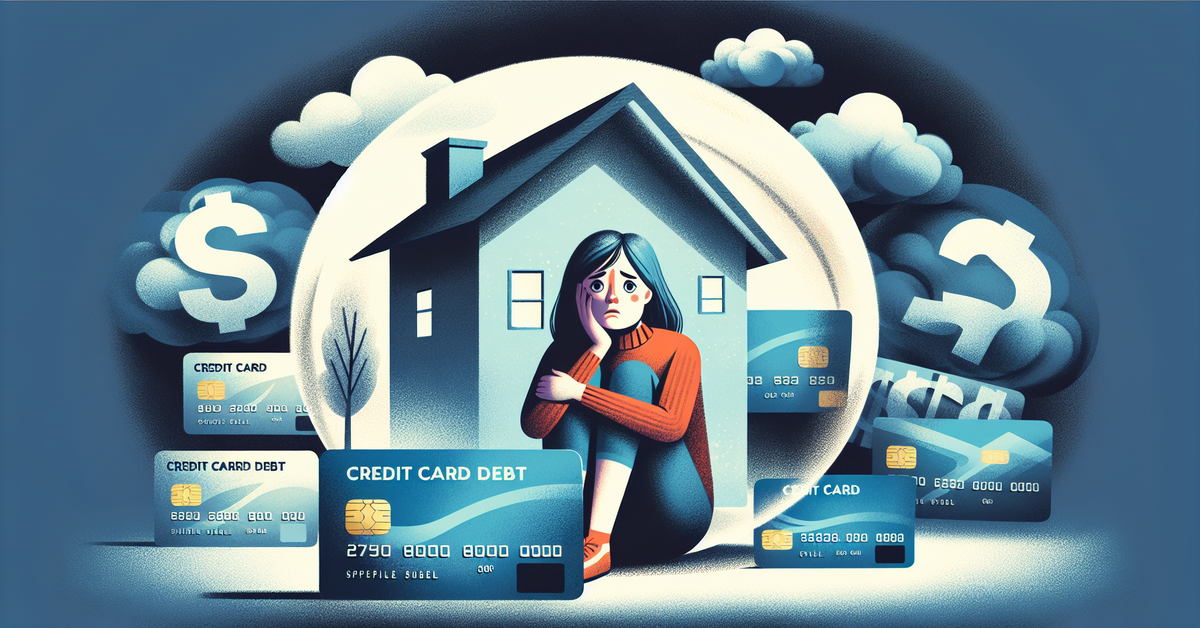You might think a simple credit card bill could lead to your home being seized, but the reality is a bit more complicated. While credit card debt alone can't directly result in losing your house, there are circumstances where creditors can go after your assets if you're not careful. Guiding through the laws surrounding this issue can feel overwhelming, especially when it comes to understanding your protections and options. So, what steps can you take to safeguard your home and guarantee you stay on solid ground?
Understanding Credit Card Debt
Understanding credit card debt is essential, as it can accumulate quickly and lead to financial strain if not managed effectively. Credit cards often come with high-interest rates, meaning that any unpaid balance grows rapidly. If you're only making minimum payments, you might find yourself in a cycle of debt that's hard to escape. It's vital to track your spending and create a budget that allows you to pay off your balance in full each month. Additionally, late payments can result in fees and higher interest rates, further complicating your financial situation. By being informed about interest rates, fees, and payment strategies, you can take control of your credit card debt and protect your financial well-being.
Legal Protections for Homeowners
Homeowners have specific legal protections that can shield them from losing their property due to credit card debt, primarily through laws governing bankruptcy and homestead exemptions. When facing overwhelming debt, filing for bankruptcy may allow you to halt foreclosure proceedings and potentially eliminate some of your debts. In many states, homestead exemptions protect a portion of your home's equity from creditors, ensuring you can retain your residence even if you owe money. These exemptions vary by state, so it's essential to understand local laws. Additionally, certain federal protections may apply, depending on your situation. Knowing these protections can provide you with peace of mind, helping you navigate financial difficulties without the constant fear of losing your home.
When Creditors Can Pursue Assets
While legal protections can help safeguard your home, it's important to recognize that creditors can pursue your assets under specific circumstances when debts go unpaid. Understanding these situations can prepare you for potential risks. Here are key scenarios where creditors may take action:
- Judgment against you: If a creditor sues and wins, they can pursue your assets.
- Secured debt: If your debt is backed by collateral, creditors can seize that asset.
- Bankruptcy proceedings: In certain bankruptcies, non-exempt assets may be liquidated to satisfy debts.
Being aware of these situations can help you take proactive measures to protect what's important to you.
Steps to Protect Your Home
Protecting your home from potential creditors involves taking specific steps to guarantee your assets remain safe from claims related to unpaid credit card debt. First, consider homestead exemptions, which can shield a portion of your home's equity from creditors. Check your state's laws to understand the amount you can protect. Next, maintain accurate records of ownership and your financial situation, as this transparency can help in disputes. Additionally, avoid transferring property to friends or relatives to evade creditors, as this may be viewed as fraudulent. Finally, consult a financial advisor or attorney for personalized strategies tailored to your situation. By taking these proactive measures, you can better safeguard your home against potential claims.
Alternatives to Manage Debt
There are several effective alternatives for managing debt that can help you regain financial stability without risking your home. Consider these options:
- Debt Consolidation: Combine multiple debts into one loan with a lower interest rate.
- Credit Counseling: Work with a professional to create a manageable budget and repayment plan.
- Negotiate with Creditors: Contact your creditors to discuss payment arrangements or settlements.
Each option has its pros and cons, so it's crucial to evaluate which fits your situation best. Taking proactive steps can help you manage your debt effectively while protecting your most valuable assets.



